Y our G uide
to the J ewish
H olidays
From Shofar
to Seder
Cantor Matt Axelrod
JASON ARONSON
Lanham Boulder New York Toronto Plymouth, UK
Published by Jason Aronson
A wholly owned subsidiary of Rowman & Littlefield
4501 Forbes Boulevard, Suite 200, Lanham, Maryland 20706
www.rowman.com
10 Thornbury Road, Plymouth PL6 7PP, United Kingdom
Copyright 2014 by Jason Aronson
All rights reserved. No part of this book may be reproduced in any form or by any electronic or mechanical means, including information storage and retrieval systems, without written permission from the publisher, except by a reviewer who may quote passages in a review.
British Library Cataloguing in Publication Information Available
Library of Congress Cataloging-in-Publication Data
Axelrod, Matt, 1966 author.
Your guide to the Jewish holidays : from shofar to Seder /
cantor Matt Axelrod.
p. cm.
Includes index.
ISBN 978-0-7657-0989-9 (cloth : alk. paper)
ISBN 978-0-7657-0990-5 (electronic)
1. Fasts and feastsJudaism. I. Title.
BM690.A84 2014
296.4'3dc232013033886
 The paper used in this publication meets the minimum requirements of American National Standard for Information SciencesPermanence of Paper for Printed Library Materials, ANSI/NISO Z39.48-1992.
The paper used in this publication meets the minimum requirements of American National Standard for Information SciencesPermanence of Paper for Printed Library Materials, ANSI/NISO Z39.48-1992.
Printed in the United States of America
For Judah and Josh
A cknowledgments
T he book that youre holding in your hands is the end result of a long process that could never have taken place without the hard work and professional expertise of a bunch of people. First, Id like to thank my agent, Anne Devlin, for her constant effort and wise advice. Thank you to the wonderful folks at Jason Aronson, and especially Lindsey Porambo and Julie Kirsch, for their tireless work at turning my thoughts and sometimes questionable attempts at humor into a coherent and readable manuscript.
Im enormously grateful to my friends and congregants at Congregation Beth Israel in Scotch Plains, New Jersey, for always showing their warmth and support. Its been an honor and a pleasure to call our temple my familys home for so many years. Finally, this book could never have been possible without the ever-present love and patience of my wife, Tali, and sons, Judah and Josh. Thanks for making this so much fun.
I ntroduction
O h great, just what the world neededanother book about the Jewish holidays.
If youre like a lot of people, your basic understanding of every Jewish holiday consists of They tried to kill us. We won. Lets eat.
There always seems to be another arch villain who has it out for the Israelites, at which point God intervenes, the dastardly plot is foiled, and we can all happily sit down to our traditional festive meal of gefilte fish, potato latkes, and grape juice (the three items that each supermarket puts on sale for every Jewish holiday ).
If you attended a synagogue religious school many years ago, you may have learned a little more about the holidays. Then you proceeded to learn the exact same thing every single year after that. When a second grader asks why we do certain things for each holiday, you can get away with answering, Because its in the Torah and God told us to. Unfortunately, thats still the answer that a lot of adults get when they reasonably ask the same question later in life.
Consider this book the response to all that. Inside, youll find all the stuff you never learned in Hebrew school. For instance, how many New Years are there in the Jewish calendar? Why is there absolutely no mention of any oil or a miracle in the original Chanukah story? What makes the fun, kid-friendly Purim story of Esther and Mordechai one of the bloodiest and most violent books of the Bible?
Ive found that most books about Judaism read like a dry instruction manual: Place menorah on the table. Carefully insert the proper number of regulation-sized Chanukah candles in menorah. Light the candles and say the mandated blessings. Other times, when you ask a question, the answers themselves make you even more confused because theyre filled with terms and phrases that people assume you should already know. And that in turn makes you afraid to ask anything else. Finally, a lot of books and material on the Jewish holidays are heavily laden with religious overtones, implicitly judging you for not being more observant and failing to provide any information for the casual reader whos simply looking to learn more, even in a secular environment.
Its time to bring these holidays to life and learn about them in an enjoyable way, with accessible explanations and interesting and useful facts, along with a generous dose of humor.
This book is perfect for you if
you always wanted a better understanding of the Jewish holidays but had no idea where to start and were afraid to ask someone and risk listening to a boring answer for two hours.
you remember the same tired facts from Hebrew school but want to learn about the holidays on an adult level.
you know that Jews are supposed to observe the holidays but want to know what makes the holidays relevant in modern times.
you are a non-Jewish person who is seeking to find out much more about the Jewish holidays and rituals. Maybe youre in the process of embracing the Jewish religion on your own, or are embarking on a relationship with someone who is Jewish, and you want a more thorough understanding of the festivals and occasions.
There are also sections within each chapter marked In Depth, or Perfect for Families that delve into the material in different ways. Youll read about every holidays back story, which provides the proper context for each occasions existence and traditions. And youll have a chance to discover more modern interpretations and customs.
Of course, what would the Jewish holidays be without food? Ill explain some of the common foods associated with the festivals (hint: gefilte fish is not mentioned in the Torah even once) and why theyve become traditional.
You can easily read this book cover to cover and really appreciate the cycle of the Jewish calendar and see how each holiday, with its distinct mood and emotions, flows into the next. Alternately, feel free to simply turn to a certain chapter if youre interested in finding out more about a specific holiday. I also include a guide at the end of the book that briefly summarizes the main points of each holiday, but dont even think about skipping the entire book and just reading that first. That would be cheating.
Get ready to explore the beauty and meaning of the Jewish holidays.
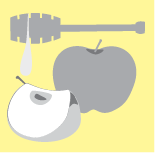
Chapter
R osh H ashanah
Repent Now!
W hen is a new year not a new year?
The idea of celebrating a new year, the change in the calendar from the end of one year to the first day of the next one, is something we can all understand. In our own Gregorian calendar (which I like to call the regular calendar for the sake of simplicity), the concept is neat and tidy. Each year we come to the end of December, gather with friends, and fight to stay awake until the magic hour of midnight, at which time we wish each other Happy New Year! and hastily make our exits so we can get home and in bed by 12:03 a.m.
Shouldnt it be that easy in Judaism?
Rosh Hashanah, which means head of the year, is the Jewish New Year. The new year of our regular calendar predictably takes place on the first day of the first month (January 1). Similarly, we would assume that the Jewish New Year falls on the first day of the first month of the Jewish calendar. Since the Hebrew date of Rosh Hashanah falls on the first day of Tishrei, that all seems to work out fine. But Tishrei is not the first month of the Jewish calendar. Its really the seventh month. Thats right, the Jewish New Year falls on the first day of the seventh month.


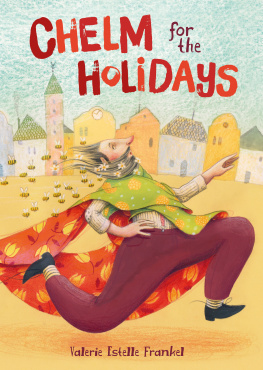
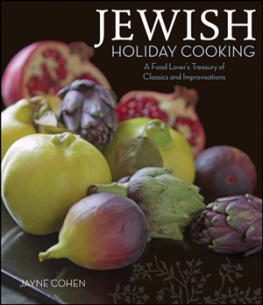
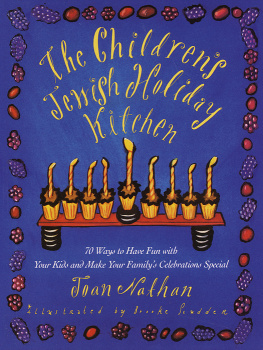
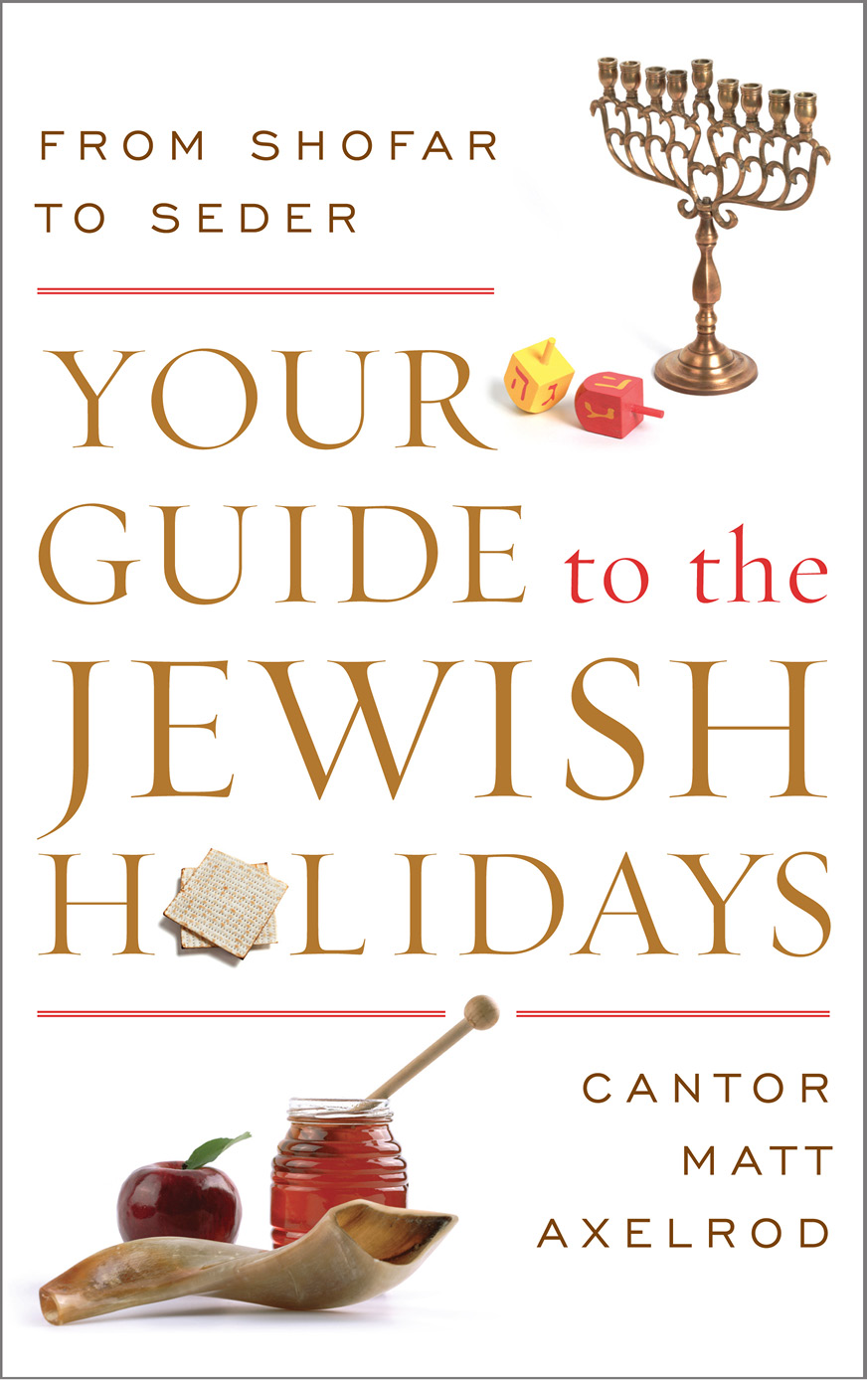
 The paper used in this publication meets the minimum requirements of American National Standard for Information SciencesPermanence of Paper for Printed Library Materials, ANSI/NISO Z39.48-1992.
The paper used in this publication meets the minimum requirements of American National Standard for Information SciencesPermanence of Paper for Printed Library Materials, ANSI/NISO Z39.48-1992.